Standing atop a two- thousand year old amphitheatre, the
once populous city burst to life before me: A woman collecting water from the
well, vendors trying to sell their wares at the market, little kids playing
around the city fountain.
Then the ringing of sword against shield. A misstep and the
crowds erupt into a frenzy as their favourite gladiator falls into a heap.
The vision vanishes and I find myself overlooking the
ancient ruins of
Heraclea Lyncestis...
 |
| Pathway to the site |
I first visited Heraclea Lyncestis in 2012, on my first sojourn to
Bitola. Excited to see the well- preserved early Christian mosaics, I was sorely
disappointed when on arrival; I was told that only a portion of a single mosaic
was open. All the rest covered in stone or gravel as protection against the
elements of the upcoming winter months. Oh well, I thought, maybe next time. The rest
of the site was still a sight to behold.
 |
| My first visit in 2012 |
This time, I was prepared: I would see all the
mosaics under a summer morning sun. I arrived an hour after the grounds opened,
and already, there were tour buses lining the parking lot. Everyone had the
same idea, and the area containing the mosaics was swamped. So I started my
tour at the top of the amphitheatre which now hosts concerts in the summer
months.
 |
| Stone steps leading up to the amphitheatre |
Next, it was onto the museum which is held in the
building that once served as a marketplace, and whose facade was recently
reconstructed.
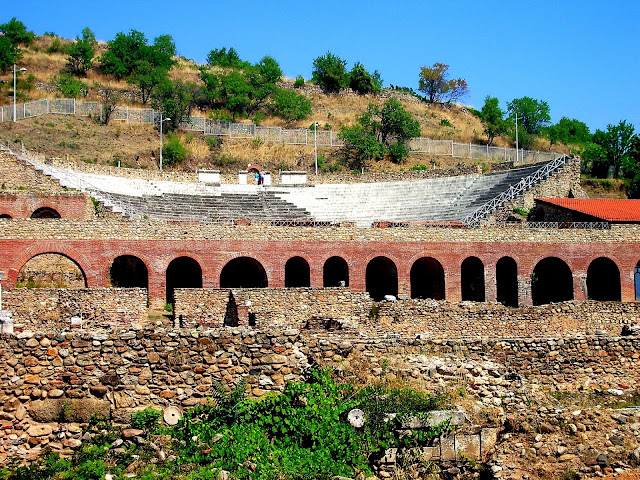 |
| Reconstructed museum facade and amphitheatre |
As excavation at the site is an ongoing process, I was shocked to
find that most of the display cases in the museum were empty. In 2012, the
shelves and cabinets were neatly lined with an array of artefacts- all labelled
and numbered. Now, the few pieces that were left, offered little or no title.
 |
| 2nd Century Tragedy Mask |
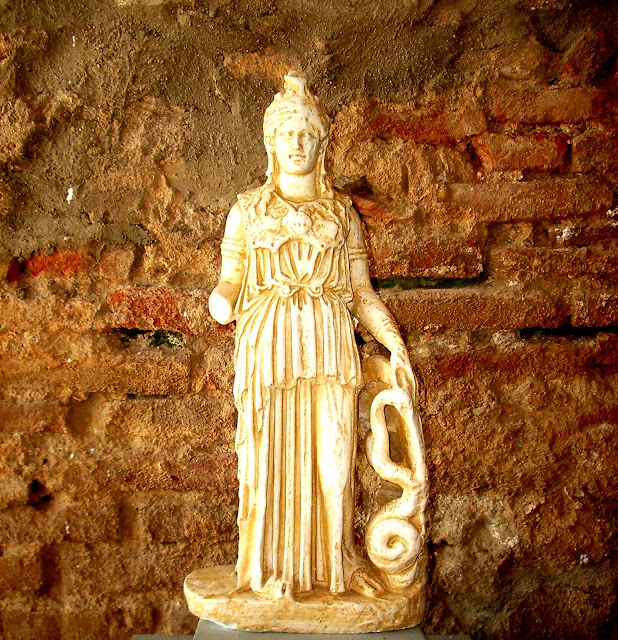 |
| Athena Partenos 2nd to 3rd Cenruty |
Still, it was interesting to see the tools and and pottery that people once used. Suddenly, hoards of people filed through the museum doors- which could only
mean one thing: The mosaics were free!
 |
| Tools |
 |
| Beads |
 |
| Pottery |
I followed a mostly undefined path to get to the mosaics.
To view them, you actually have to walk along narrow stone walls sometimes
joined together with sheets of corrugated metal. At its highest, the walls were
probably a metre high, but, as you may already know, I’m allergic to
heights, and my path was a slow and wobbly one.
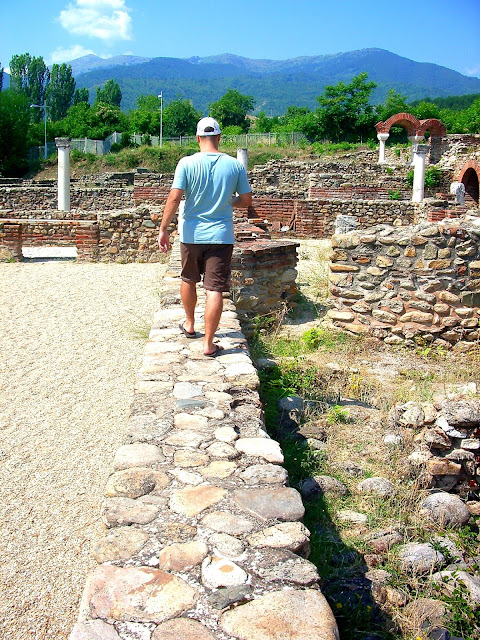 |
| Narrow stone walls |
And then I saw it...
Layers and layers of gravel.
NOT AGAIN!!!! Surely winter is too far away to
already have the artworks covered?! Sigh...
But all was not lost, there were two whole mosaics open-
and that’s more than I had previously seen.
Red and blue, black and white, swirls and waves, lions
and peacocks- all still decorating the floor of the great basilica.
 |
| The Bull and Lion |
Trees bursting with ripe fruit and a leopard having lunch-
the mosaics were alive and vibrant.
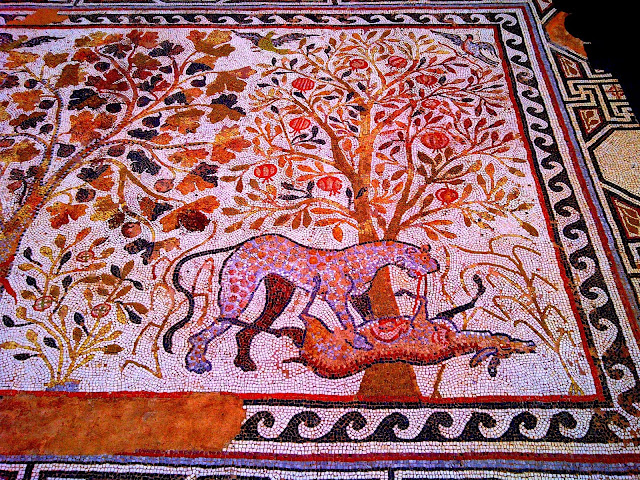 |
| Leopard having lunch |
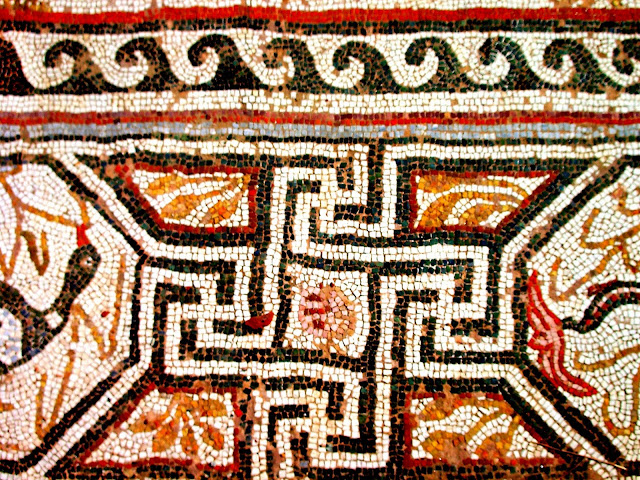 |
| Mosaic Detail |
I was satisfied. But I would definitely like to see the other 9 mosaics someday. Maybe third time's a charm?
It is widely known that Heraclea Lyncestis was home to a population of about 30 000 people, and the excavated ruins represent only about 15% of the entire city.
Founded by Philip 2nd of Macedon, it was later part of the Roman Empire, and as with all great empires, one finds a rich tapestry of history. You can read about
here.
I surveyed the rest of the area, and visited the city fountain, communal well, small basilica and courthouse- all in relatively good shape.
 |
| The City Fountain |
 |
| The Communal Well |
 |
| The Small Basilica |
 |
| Tiled floor of the Small Basilica |
 |
| Statue in the Courthouse |
The details are magnificent even after all these years and I look forward to the findings yet to be unearthed.
On my way out, I bumped into a staff member and he informed me that all eleven mosaics were open for viewing last year. As a way of preservation, they do not open all of them each year- which is quite understandable.
I would say I would call before visiting the next time, but for less than $2 USD, I would rather wander around the site absorbing all the history...
****************************************
Notes:
- The entrance fee is 100 Denars (about $1.80 USD) per person.
- There is an additional charge of 300 Denars for taking photo's.
- Wear comfortable shoes!!! Ground is uneven, and like I said, you have to scale walls.
- Also, its scorching hot, so wear protective clothing and lots and lots of sunscreen.
*If you're visiting Bitola or just passing through, Heraclea Lyncestis is definitely worth a visit.
*These are current prices and they may or may not change, so double- check before visiting.
Labels: Ancient Ruins, Bitola, Heraclea Lyncestis, Macedonia, Travel














